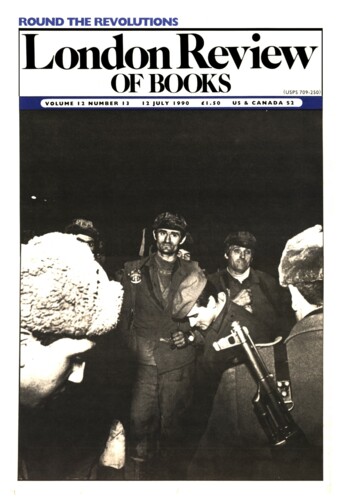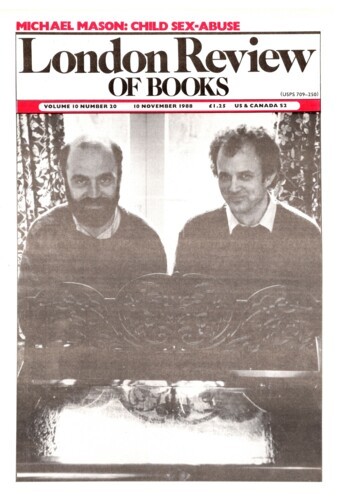From the Urals to the Himalayas
T.H. Barrett, 12 July 1990
One wonders what Lord Acton would have made of this slim, undersized volume claiming the name of Cambridge History. A part of the world that has given us Tamerlane, Genghis Khan and Attila the Hun can hardly be dismissed as unimportant, but it must be said that little of world-shaking significance has happened there lately, although there are signs that this may now be changing. The most famous Inner Asian of our own times was probably Irving Berlin, and he left at a very early age. Where the Golden Horde has yielded to Alexander’s Ragtime Band why bother about so long ago, so very far away? Of course, such complacency may be premature. The late 20th century turns out to be full of the most unlikely surprises: in his introductory discussion of the concept of Inner Asia Denis Sinor laments the total disappearance of the useful concept of Central Europe, but while his piece has been in the press up it has popped again.



